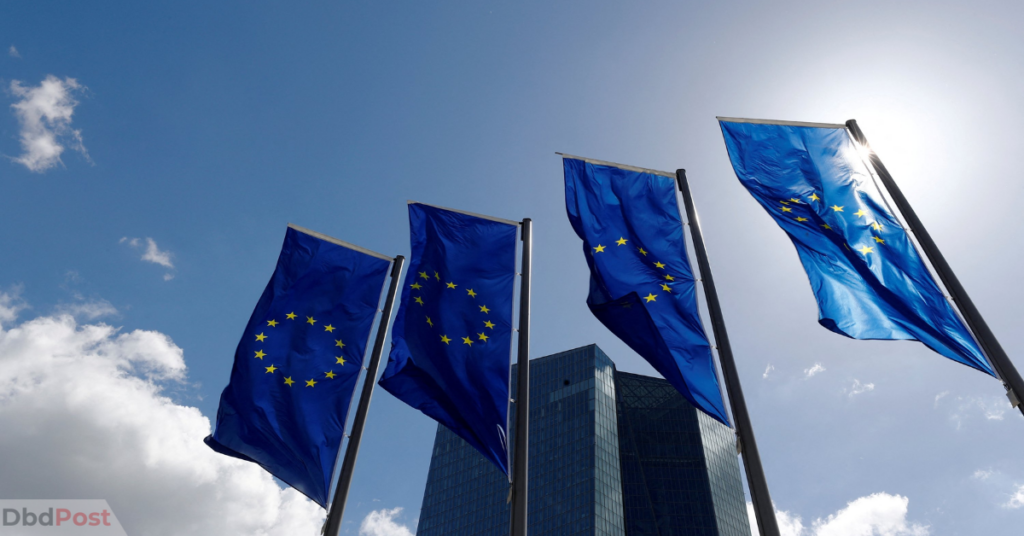The calendar flips to 2025. Leaders across Europe note the shifting geopolitical landscape and sense renewed optimism about the European project.
Ukraine still contends with aggression from its eastern neighbor. EU officials promise unwavering support through the Ukraine Facility and a sizable G7 loan. Many experts believe this funding will help bridge Ukraine’s financing gap this year.
Meanwhile, the Middle East remains high on the EU’s agenda. Officials plan additional diplomatic outreach to address security, energy, and migration. They insist on collaborative solutions that promote peace and regional stability.
Europe also looks westward. The United States is undergoing a leadership transition. European institutions want to strengthen trade, technology, climate, and defense alliances.
However, challenges at home also demand attention. Officials emphasize the need to address rising energy costs. They also focus on protecting strategic industries, boosting economic competitiveness, and safeguarding supply chains.
Many policymakers see 2025 as a watershed moment. Countries want to secure positions in a rapidly evolving world, so they plan to anchor their strategies in resilience, sustainability, and robust democratic values.
Moreover, leaders aim to balance immediate economic pressures with long-term reform goals. Policy experts see opportunities to promote biotech, AI, and digital infrastructure innovation. They note that streamlined regulations can unlock fresh investments and create new jobs.
A recent Facebook post by the European Parliament highlights how policymakers are taking action to shape 2025.
Officials at the Commission emphasize digital sovereignty. They want the EU to cultivate homegrown tech giants. They also hope to nurture secure data networks and advanced cybersecurity systems.
Sustainability advocates call for bolder climate measures. They advocate for greener transportation, cleaner energy production, and stricter emissions targets. Some business groups worry about regulatory burdens, but others applaud Europe’s forward-thinking environmental stance.
Diplomats expect robust debates on defense, too. Citizens remain sensitive to threats along the EU’s borders. They urge leaders to enhance military cooperation and coordinate procurement across member states.
Many in Brussels see consensus building around strategic autonomy. Europe wants to chart its global affairs path and seek strong partnerships without losing independent decision-making power.
Throughout 2025, EU institutions plan to implement new regulations, dialogues, and funding measures and are ready to respond to unforeseen events.
Europe’s Global Commitments in 2025
Transatlantic cooperation is at the forefront. Policymakers seek more profound engagement with Washington on security and digital governance and want to align with the US on climate and trade challenges.
At the same time, the Union looks south and east. It invests diplomatic resources in the Middle East to prevent conflicts from spreading. European officials mention that energy interdependence makes stability there a shared priority.
Furthermore, the EU’s stance on Ukraine remains resolute. Observers acknowledge that the conflict reshapes the continent’s security calculus. Meanwhile, humanitarian organizations highlight the ongoing toll on civilians, which motivates continued European solidarity.
Analysts believe the Ukraine Facility can help repair shattered infrastructure. They also see the G7 loan as an emblem of broad international support. Experts say these combined efforts will help Ukraine remain strong through 2025.
European officials emphasize that these measures go beyond finances. They include initiatives for governance reforms and institution-building. Civil society groups welcome this approach because it fosters trust in democratic norms.
Leaders also emphasize the importance of neighboring states. They intend to boost connectivity and expand trade routes, viewing these actions as a bulwark against regional instability and disinformation campaigns.
Observers note a convergence of European values with global goals. Many talk about the synergy between sustainable development and economic progress. Diplomats believe Europe’s commitment to a greener future resonates with partners worldwide.
Roberta Metsola’s recent Instagram reel provides a glimpse into how these values are shaping the EU’s agenda for 2025.
Policymakers also mention the Schengen expansion. On January 1, 2025, they intend to welcome Bulgaria and Romania. Officials see this step as a meaningful gesture that strengthens free movement within the bloc.
Civil society groups praise this development. They argue that free movement enriches cultural exchange and fosters unity. They also appreciate more significant opportunities for cross-border collaboration and tourism.
Analysts acknowledge that Schengen’s 40th anniversary occurs this year. They see an interesting parallel between expansion and celebration. Many interpret this milestone as a fresh signal that Europe is moving together.
Significant Anniversaries and Institutional Shifts
Austria, Finland, and Sweden are celebrating 30 years in the EU. They joined in 1995 and brought unique approaches to neutrality, social welfare, and green policies. Events throughout 2025 will commemorate their contributions to the Union.
Meanwhile, leaders are honoring the 75th anniversary of the Schuman Declaration. Scholars call it the bedrock of European integration and mention how Robert Schuman’s vision still influences policy choices today.
Across the EU, citizens reflect on Europe’s progress since the post-war era and wonder what challenges lie ahead. Many observers claim that unity remains vital to addressing crises more effectively.
In the institutional realm, the European Parliament and Commission, which took office in 2024, now navigate a complex environment. They tackle domestic demands and external upheavals. They work closely with the Council of the EU, which sees Poland and Denmark hold rotating presidencies.
Officials anticipate distinct priorities from these presidencies. Poland will likely emphasize security on the EU’s eastern border. Denmark is expected to champion a greener agenda and further digital innovation.
Many watchers applaud this balance. They note that security and sustainability are core pillars of Europe’s future and believe that synergy between presidencies can produce a harmonious policy approach.
Experts predict announcements on the next Multiannual Financial Framework for 2028–2034. They note that preliminary discussions will shape the EU’s spending blueprint.
Participants see these talks as essential because they determine the level of investment in cohesion funds and cross-border projects.
Budget analysts recommend flexible targets that accommodate sudden global crises. They point to recent years as evidence of unforeseen shocks. They say that a well-structured MFF can bolster Europe’s capacity to adapt.
Businesses eagerly await these outlines. They want clarity on future programs that support research, innovation, and entrepreneurship. Many also hope to see dedicated funds for digital upskilling and strategic industries.
Civil society groups weigh in on social programs. They call for more substantial commitments to healthcare, education, and job training. Some trade unions insist on robust worker protections and collective bargaining rights.
Onlookers expect lively debates. Parliamentarians want to build consensus across member states and finalize a budget strategy that aligns with national priorities and shared European aspirations.
Many Europeans anticipate 2025, which they trust will mark a turning point for the EU. They hope for renewed collaboration, inclusive growth, and peace.
A recent video of the EU’s final meeting reflects this optimism and urgency. Leaders gathered to address new challenges and chart a path forward.
Several voices call for continued vigilance. They stress that disinformation and cyberattacks threaten democratic processes. They encourage educational campaigns and targeted digital hygiene efforts to combat such risks.
Indeed, 2025 appears pivotal. It features milestones, institutional shifts, and ambitious goals. Observers note that Europe has a valuable chance to shape global progress, defend its values, and stand firm in unity.
Policymakers underscore a simple truth. No single nation can tackle every challenge alone. They say that solidarity within the EU remains crucial in an unpredictable world.
Many believe the Union’s greatest asset is its ability to combine diverse strengths. They envision a future where innovation flourishes and borders remain open. They also foresee the EU playing a decisive role in promoting stability, democracy, and sustainable prosperity.
Ultimately, Europeans and their leaders will move forward together in 2025. They draw strength from shared convictions and historical experience. They also aspire to adapt swiftly and maintain a guiding presence on the world stage.
Thus, the year ahead offers more than challenges. It provides the chance to renew the spirit of unity and cooperation, which has defined Europe’s progress and promises to shape its destiny in the coming decades.
- 107shares
- Facebook Messenger
About the author
Kendrick Turner is an experienced journalist and senior contributor with over a decade of expertise in politics, social justice, culture, and global affairs. A Howard University graduate, he is committed to amplifying underrepresented voices and fostering meaningful conversations through his reporting.





